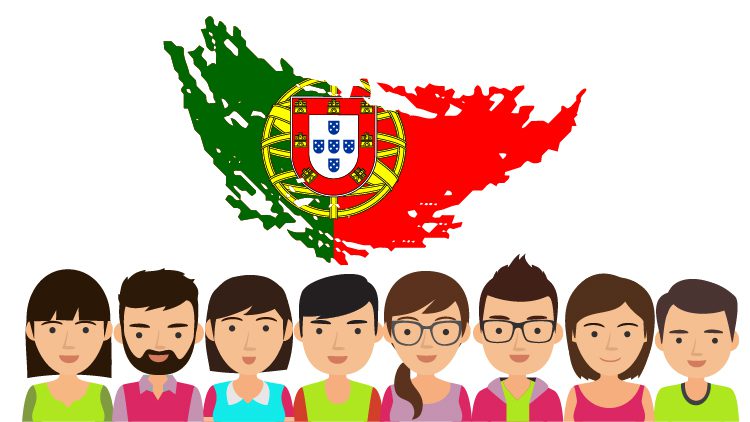
Unlocking the Mystery: Discovering the Language of Portugal
What language is ratified as the official language of Portugal?
Portuguese is the official language of Portugal, and it holds great significance in the country’s culture and identity. As a Portuguese Speaker, you’ll find that the language is deeply woven into everyday life, from official documents and education to media and literature. The roots of Portuguese can be traced back to the 14th century, and it has evolved over the centuries to become the expressive language it is today. With its nasal sounds and personal infinitive, Portuguese has its unique charm and character. It’s not just the language of Portugal but also other Portuguese-speaking countries like Cape Verde, East Timor, and Mozambique. Moreover, Portuguese has a vast global reach, with thousands of people worldwide embracing it as a means of communication, cultural expression, and connection to their heritage.
Portuguese has also shaped other languages, like Brazilian Portuguese, which developed its distinct vocabulary and pronunciation. As we delve further into the nuances and history of the Portuguese language, you’ll gain a deeper appreciation for this rich and diverse language.
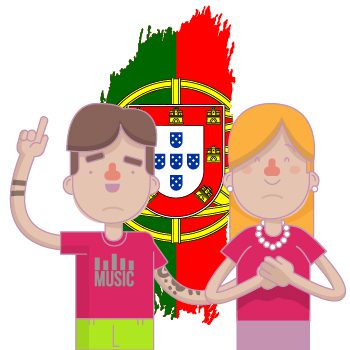
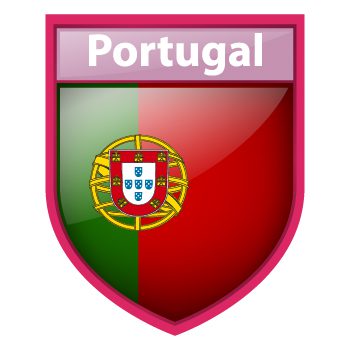
Exploring the history of the Portuguese language unveils a rich linguistic journey
The history of the Portuguese language is fascinating and filled with rich cultural influences. As we know it today, Portuguese originated from Latin, the language of the ancient Romans. It began to take shape in the 9th century in what is now modern-day Galicia, Spain and spread across the Iberian Peninsula.
Portuguese explorers traveled the world during the Age of Discoveries in the 15th and 16th centuries, establishing trade routes and colonies. This expansion significantly spread Portuguese to regions like Brazil, Angola, Mozambique, and Goa, India.
Throughout history, Portuguese has undergone various changes and adaptations. In the 19th century, reforms were made to standardize the language, and it became the official language of Portugal. However, regional variations and dialects still exist, adding diversity and richness to the language.
Today, Portuguese is one of the most widely spoken languages in the world. It is not only the native language of Portugal and Brazil but also an official language in several African countries and East Timor. Portuguese continues to evolve in the 21st century, incorporating loanwords from other languages and adapting to modern advancements. Its history is a testament to this beautiful language’s enduring power and influence.
Evolution of Portuguese Language
The Portuguese language has played a pivotal role in shaping the daily lives of people across various regions and time periods. From the medieval language spoken in the 10th century to its status as an international language in the 21st century, Portuguese has evolved and adapted to meet the needs of its speakers.
In the 19th century, Portuguese continued to spread and develop, particularly in regions like Cape Verde and Rio de Janeiro, where it became ingrained in the cultural fabric of the communities. Cape Verdean Portuguese, for example, exhibits unique characteristics influenced by local dialects and historical events.
During the 20th century, Portuguese experienced significant growth and expansion, particularly in Central Africa, where it became an official language in independent countries like Angola and Mozambique. Despite political separation, Portuguese-speaking communities maintained strong ties through shared language and cultural heritage.
How to say common phrases in Portuguese
Are you ready to learn some common phrases in Portuguese? Knowing a few key phrases can make your time in Portugal more enjoyable, whether you’re a seasoned traveler or just looking to expand your language skills.
Here are some essential phrases to get you started:
- “Olá” – This is the Portuguese word for “hello” and is a great way to greet someone in a friendly manner.
- “Obrigado/a” – This phrase means “thank you” and is an important phrase to express gratitude in Portuguese.
- “Desculpe” – If you need to apologize or ask for forgiveness, use “sorry” in Portuguese.
- “Por favor” – Similar to the English phrase “please,” this phrase is used to make polite requests.
- “Eu não falo português” – If you’re not a native Portuguese speaker, this phrase can be helpful. It means “I don’t speak Portuguese” and can help you communicate your language limitations.
Remember, practice makes perfect, so don’t be afraid to try these phrases during your time in Portugal. The locals will appreciate your effort to connect with them in their native language, and you’ll have a more immersive experience in this beautiful country. So try it, and see how much fun it can be to speak a little Portuguese!
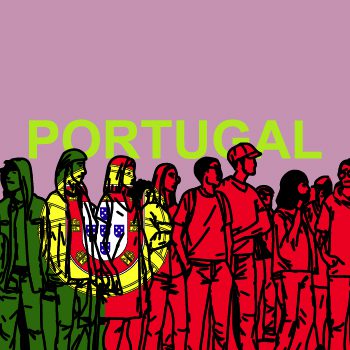
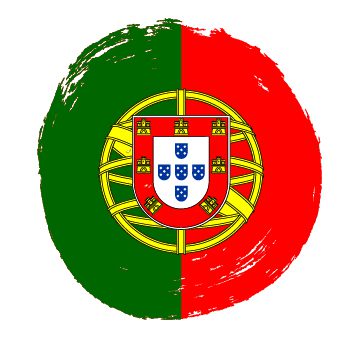
Variations of the Portuguese language in different regions
As with any language, variations of the Portuguese language can be found in different regions where it is spoken. These regional differences add depth and diversity to the language, showcasing each area’s unique cultural influences and historical developments. While the standard Portuguese language is a common language for communication among speakers, there are noticeable distinctions in vocabulary, pronunciation, and grammar across different regions.
For example, Brazil, the largest Portuguese-speaking country, has numerous regional accents and vocabulary differences. The pronunciation varies, with distinct sounds and intonations, making it challenging for non-native speakers to understand the language in certain regions. Additionally, Brazilian Portuguese incorporates many indigenous words and expressions, setting it apart from European Portuguese.
In Portugal itself, regional variations are also present. The country’s northern region has a distinctive accent, characterized by softer vowels and a more melodic tone. Conversely, the southern part tends to have a stronger accent and a faster pace of speech.
Other Portuguese-speaking countries, such as Angola and Mozambique, have unique linguistic characteristics influenced by local languages and cultures. These variations, while adding complexity, also contribute to the richness and vibrancy of the Portuguese language.
Be aware of these regional differences for English speakers learning Portuguese, as they can significantly impact your understanding and communication with native speakers. Embracing the diversity of the Portuguese language allows for a more authentic and nuanced experience when engaging with different communities and cultures.
Portuguese Language in Daily Life
In daily life, Portuguese is used in various contexts, from official documents and education to media and literature. Portuguese universities offer language learning courses to students interested in mastering the language, and online platforms provide resources for individuals looking to improve their language skills.
The Portuguese government, along with organizations like the Community of Portuguese Language Countries, plays a crucial role in promoting the language internationally and preserving its cultural heritage. Efforts to standardize Portuguese and promote linguistic diversity continue to shape the language’s future. Portuguese dialectal diversity remains prevalent, with distinct differences in pronunciation, vocabulary, and grammar across regions. From the nasal vowels of northern dialects to the oral vowels of southern dialects, each variation adds depth and richness to the Portuguese language.
Despite its political separation, Portuguese-speaking communities share a common bond through their language and cultural heritage. Whether in Portugal, Brazil, or other Portuguese-speaking countries, thousands of people engage with the language on a daily basis, enriching their lives and connecting with others across borders.
Portuguese in Cultural Identity
In regions like Rio Grande and Mato Grosso, where Portuguese is spoken on a daily basis, the language plays a central role in shaping cultural identity and facilitating communication. Whether in formal settings or informal conversations, Portuguese serves as a bridge connecting people across borders and continents.
The future subjunctive tense in Portuguese reflects the language’s dynamic nature, allowing speakers to express hypothetical situations and desires. This linguistic feature highlights the flexibility and adaptability of Portuguese, which continues to evolve in response to changing cultural and social dynamics.
Overall, the Portuguese language’s status as an international language and co-official language in multiple countries underscores its importance and relevance in today’s globalized world. From its origins in the 10th century to its widespread use in the 21st century, Portuguese remains a vibrant and dynamic language that continues to enrich the lives of millions of people worldwide.
Beyond Lusophone: Other Languages That Find a Home in Portugal
One of Portugal’s widely spoken foreign languages is English. English is taught in schools and is commonly spoken, especially in tourist areas. Many Portuguese people have a good command of English, making it easier for visitors to communicate. Another language that is commonly spoken in Portugal is Spanish. Due to the geographical proximity and historical ties between Portugal and Spain, many Portuguese people are fluent in Spanish or at least have a basic understanding of the language.
Additionally, with the influx of immigrants from different countries, there are communities in Portugal where others are spoken, such as Romanian, Mandarin, and French languages. The multicultural nature of Portugal makes it a diverse and fascinating country with a rich linguistic tapestry. So, if you visit Portugal, don’t be surprised to hear different languages besides the beautiful Portuguese.
Portuguese Dialects and Global Influence
Despite its historical and linguistic significance, Portuguese dialects and regional variations abound. Northern dialects, for example, are characterized by softer vowels and a more melodic tone, while southern dialects tend to have a stronger accent and faster speech pace. Brazilian dialects, influenced by indigenous languages and African dialects, also exhibit unique vocabulary and pronunciation differences.
In the 18th century, reforms were made to standardize the language, leading to its official status in Portugal and its emergence as a single language with co-official status in other Portuguese-speaking countries. However, dialectal diversity remains prevalent, adding depth and richness to the Portuguese language.
Today, Portuguese is not only the official language of Portugal and Brazil but also an official or co-official language in several African countries, including Equatorial Guinea, Cape Verde, and Sao Tome and Principe. It is also widely spoken in immigrant communities around the world, particularly in Europe and the Americas.
Portuguese: A Gateway to Global Opportunities
In our increasingly globalized world, the importance of Portuguese as a widely spoken language cannot be underestimated. With over 250 million Portuguese speakers worldwide, it opens up opportunities for communication, cultural exchange, and business connections.
For English speakers, learning Portuguese can enhance their global reach and enable them to engage with Portuguese-speaking communities across different continents. Knowing Portuguese can create meaningful connections and facilitate a deeper understanding of Portuguese culture, whether for travel, work, or personal interest.
Similarly, for Spanish speakers, learning Portuguese can be relatively more straightforward due to the similarities between the two languages. This can further expand their linguistic abilities and allow them to communicate with a larger community.
Linguistic Dynamics: Portuguese Influence
In the realm of linguistics and cultural dynamics, the concept of autonomous community holds paramount significance, especially when considering the Portuguese language status within such regions. From the inculta e bela charm of its northern dialects to the distinctiveness that sometimes blurs the line between separate languages and Italian dialects, the intricacies of linguistic evolution become apparent.
Amidst these complexities, institutions like the Academia Galega da Língua strive to preserve the essence of Lusitanian influences while accommodating the evolving needs of diverse person classes through person lessons. The governance landscape, spanning from the Portuguese government to Equatorial Guinea’s people Government, echoes the vast reach of Portuguese across continents, traversing the Atlantic Ocean with European Portuguese as its beacon.
Equatorial Guinea, nestled within its cultural tapestry, stands as a testament to this linguistic journey, where thousands of people are woven into the fabric of Portuguese heritage. In this digital age, an online platform emerges as a bridge, connecting voices across borders and fostering a shared appreciation for the richness of European dialects and beyond.
Expanding Horizons with Portuguese
For those interested in studying romance languages, knowing Portuguese can provide a foundation for learning other languages such as French and Italian. The similarities in vocabulary and grammar structures can facilitate learning and create a pathway to explore other linguistic horizons.
Moreover, with Portuguese-speaking countries like Brazil gaining global prominence, knowing Portuguese can open up exciting opportunities for business and trade. Communicating effectively in Portuguese can give individuals a competitive edge and help them build strong connections in these emerging markets.
Overall, the importance of Portuguese in the globalized world cannot be overstated. It is a language that connects diverse cultures, fosters international cooperation, and expands personal and professional horizons. So, whether you’re a language enthusiast or looking to enhance your career prospects, learning Portuguese can be a valuable investment in our interconnected world.
FREQUENTLY ASKED QUESTIONS
Is Portuguese spoken in other countries besides Portugal?
Yes, Portuguese is widely spoken in several other countries, including Brazil, Mozambique, Angola, Cape Verde, Guinea-Bissau, and São Tomé and Príncipe. It’s also an official language in some of these former colonies.
Are there different dialects of Portuguese?
Several Portuguese dialects are spoken across different regions and countries. Brazilian Portuguese, for instance, has notable differences in pronunciation, vocabulary, and even grammar compared to European Portuguese.
How similar is Portuguese to Spanish?
Portuguese and Spanish share many similarities due to their common Latin origin. While speakers of one language can often understand elements of the other, they are distinct languages with unique grammar, vocabulary, and pronunciation.
Can I learn Portuguese if I already know Spanish?
Yes, knowing Spanish can give you a head start in learning Portuguese due to the linguistic similarities. However, there are still notable differences between the two languages that require focused learning.
What resources are available for learning Portuguese?
There are various resources for learning Portuguese, including language courses, online platforms, mobile apps, textbooks, and language exchange programs. Many universities and language schools also offer Portuguese classes.
